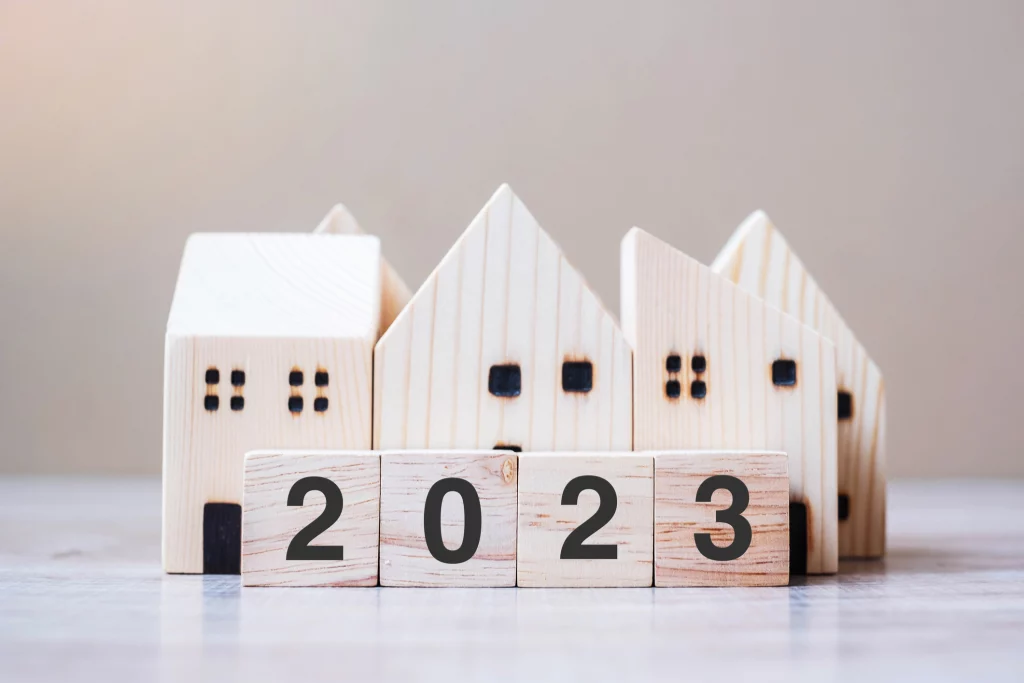Whether it is rent or mortgage payments, housing is the single biggest chunk of spending for the average consumer. That means housing has an outsize impact on overall inflation from month to month. So, after many months of near-historic levels of inflation and now early indications that inflation is slowing, what might we expect from the relationship between the two over the next several months to a year?

Within the Consumer Price Index (CPI), housing accounts for 33% — the most of any category. For home buyers, we have reached a critical point of unaffordability. Between high sales prices, high-interest rates, and cost of living increases due to overall inflation, the home sales market is shrinking significantly.
An August poll of around 30 property analysts predicted average U.S. house prices will rise 14.8% this year. That is slower than the not-too-distant pace of around 20% but higher than the May poll's prediction of 10.3%. Those forecasts are based on the S&P CoreLogic Case-Shiller composite index of 20 metropolitan areas.
No matter how you measure it today, home prices are extremely expensive. Many expect home price appreciation to be only about 2% next year. This would be the slowest pace since 2012. Home price appreciation is set to come to a screeching halt under the weight of poor housing affordability and a deteriorating economic and financial environment. It also falls in line with the growing chorus of experts predicting a recession next year. There may be a historically high demand for single-family houses, but unaffordability will force buyers to wait until major economic changes improve the landscape.
The good news for current homeowners is that no housing crisis is expected to develop. Even though a recession is highly likely, home prices are still expected to appreciate very modestly. More important is that the vast number of outstanding mortgages were taken out at interest rates near 3%. Mortgage payments don’t increase no matter what inflation does. However, inflation has also increased wages and salaries so that existing homeowners are taking home more pay each month. Stable mortgages and pay increases should mean that most homeowners with 3% to 4% mortgages will do just fine during a recession — as long as they don’t become unemployed.
Latest news — Home sales in the US declined for the ninth month in a row in October as surging mortgage rates and soaring prices continued to push buyers out of the market. Sales of existing homes (single-family homes, townhomes, condominiums, and co-ops) were down 28.4% in October from a year ago and down 5.9% from September, according to the National Association of Realtors. All regions of the US saw month-over-month and year-over-year declines.
Rent inflation is more difficult to track and predict because most leases are only renewed once a year. Rents that have been paid since this past February won’t see the effects of inflation until this coming February. Still, averages do count because existing leases are being renewed and new leases are being written every month of the year. This mostly means that year-to-year rent increases carry more weight than month-to-month increases.
However, there is solid evidence that rental inflation has slowed in 2022 from its breakneck pace last year, Zillow data suggests. Looking at small chunks of data in 2022 shows Americans paid an average of $2,040 market rent as of Oct. 31, which is seasonally adjusted according to Zillow. That rent price was up 0.31% from a month earlier, on Sept. 30. But the pace of that growth has slowed for four consecutive months. By comparison, rents had jumped by about 1% in the month from end-May to late June. Rental inflation touched 2% a month in July and August 2021. The Zillow data shows “a real substantial rent inflation taking hold in the last couple of years, but it also shows, on an annual basis, that it peaked in February.” For October 2022, the Zillow data shows an annual rent increase of 9.82% year-over-year. That is well below the peak annual increase of 17% in February 2022. The best measure of how much it has slowed will probably come in February 2023 and going forward from there.
Keep in mind that rent tends to be “sticky.” This means that, unlike mortgage payments that don’t increase, the total dollar amount of monthly rent generally does increase, and it tends to with each new lease.
Without a crystal ball, the bottom line appears to be that inflation is slowing the housing market with much of the impact yet to be felt. However, the trend appears to favor a more stable housing market that should improve affordability over time. At the same time, homeowners that stay in a 30-year mortgage for longer amounts of time will do better financially than renters that can expect rents to gradually increase year-after-year, although at a slower rate going into 2023.
Please leave your comment.